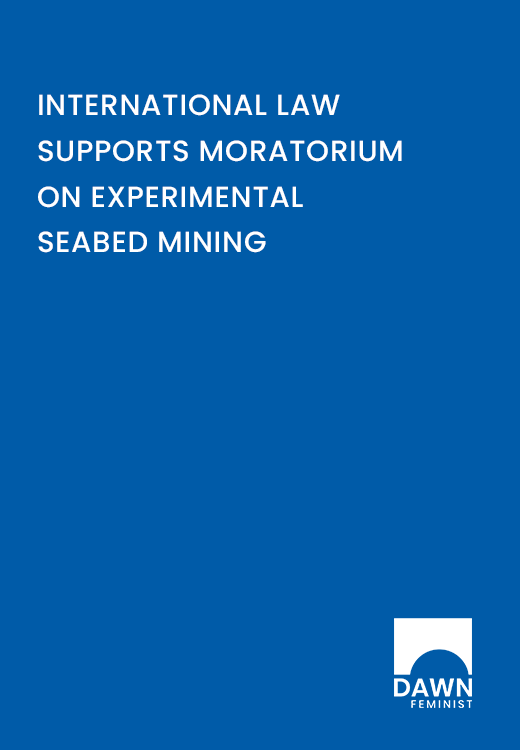Monday 27th August 2012
Pacific civil society organisations today launch a legal opinion on the application of the precautionary principle to deep sea mining in the Pacific Region. Given the considerable risks and uncertainties surrounding the environmental impacts of mining activities, “the correct interpretation of the precautionary principle leads to only one plausible result ‐ a moratorium on deep sea bed mining.”
Maureen Penjuli, Coordinator of PANG says “This legal opinion comes at a very important time when Pacific Islands Forum Leaders (PIFLs) are meeting in the Cook Islands to discuss our future. It is clear that we do not know what the impacts of seabed mining will be on our vitally important ocean environment and international law makes clear our responsibility to proceed with unprecedented caution in this area. ”
In a 10-‐page legal opinion, The Environmental Law Alliance Worldwide (ELAW)1 concludes that the application of the precautionary principle supports a moratorium on seabed mining until the risks of harm to the marine environment and coastal people are better known and understood.
The precautionary principle dictates taking a cautious approach in matters that affect the environment when there is scientific uncertainty about the negative impacts. The principle is widely used in international environmental law and has been applied in the courts in areas such as climate change, hazardous waste, fisheries and sustainable development.
“The precautionary principle is clearly cited in the Rio Declaration,” says Effrey Dademo, Program Manager for ACT NOW!, “and there is a clear obligation on all States to widely apply the principle”. This includes the need for an open, informed and democratic process involving all potentially affected parties and this is something that has just not happened prior to the introduction of experimental seabed mining. The Northern Territory Government of Australia, took the precautionary approach, in issuing a moratorium on seabed mining early this year.”
According to legal opinion, “The significant risks and uncertainties surrounding deep seabed mining implicate strict application of the precautionary principle. Little is known about seafloor mining technology, its efficacy, safety, and the impacts that may arise from the process. In addition, the deep sea environment is a unique and diverse realm that has not been extensively researched and is not well understood. Both of these uncertainties warrant unprecedented caution and attention before proceeding with full-‐scale development of deep seabed mining.”
“We need wisdom and political leadership. Do not undermine the Pacific,” says Maureen Penjueli.
Download the document here: ELAW_dsm_2012
For media enquiries contact:
Serah Aupong – Media Liaison Officer
media@pang.org.fj
+682 75670
+682 75740
______________
1 ELAW is a worldwide network of more than 300 advocates working in 70 countries who promote environmental protection through law and science in order to promote justice for their communities.

